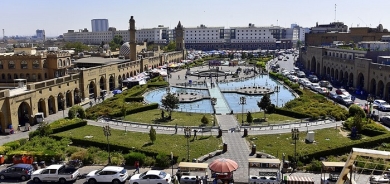U.S. strikes deal with Russia to continue U.N. Syria aid access

The U.N. Security Council on Friday extended a cross-border aid operation into Syria from Turkey after Russia agreed to a compromise in last-minute talks with the United States, ensuring the delivery of humanitarian help to millions of Syrians for up to 12 months.
"Parents can sleep tonight knowing that for the next 12 months their children will be fed. The humanitarian agreement we've reached here will literally save lives," said the U.S. ambassador to the United Nations, Linda Thomas-Greenfield.
Russia and the United States, whose relationship has been fraught on a number of issues, both described Friday's unanimous vote by the 15-member Security Council as an important moment.
"We hope that it might be a turning point that is indeed in line with what Putin and Biden discussed in Geneva," Russia's U.N. Ambassador Vassily Nebenzia told reporters after the vote. "It demonstrates that we can cooperate when there is a need and when there is a will as well."
U.S. President Joe Biden had raised the importance of the cross-border aid operation with Russian President Vladimir Putin when they met in Geneva in June. The Biden administration warned that any future cooperation with Russia over Syria would be at risk if cross-border aid deliveries were shut down.
"It shows what we can do with the Russians if we work with them diplomatically on common goals," Thomas-Greenfield told reporters. "I look forward to looking for other opportunities to work with the Russians on issues of common interest."
The council mandate for the long-running aid operation was due to expire on Saturday. The council first authorized a cross-border aid operation into Syria in 2014 at four points, but that was whittled down last year to one point from Turkey into a rebel-held area in Syria, due to Russian and Chinese opposition.
Russia, an ally of Syrian President Bashar al-Assad, did not engage in weeks of talks on a resolution drafted by Ireland and Norway that initially sought aid access from Turkey and Iraq for 12 months. Then on Thursday, Russia proposed a six-month renewal for just the Turkish crossing.
After negotiations between Thomas-Greenfield and Nebenzia on Friday, the council unanimously adopted a compromise resolution that asks for a U.N. report on Syria aid access in six months, but that Thomas-Greenfield said does not require another vote in January to again extend the cross-border operation.
However, Nebenzia signaled that the council could have to vote again in January if the United Nations does not report progress on aid deliveries across front lines from within Syria and the transparency of cross-border operations.
Russia has said the aid operation is outdated and violates Syria's sovereignty and territorial integrity. In a swipe at the United States and others, Russia and China have also blamed unilateral sanctions for some of Syria's plight.
Although the United States wanted the Security Council to authorize two crossings from Turkey and one from Iraq, Thomas-Greenfield said Friday's agreement was still a "success" because while "we wanted more, but we certainly didn't want less."
U.N. Secretary-General Antonio Guterres welcomed the council's renewal of the "lifeline" for more than 3.4 million people in need, including 1 million children.
However, Guterres' spokesman Stephane Dujarric said, "With additional crossings and expanded funding, the United Nations could do more to help the rising number of people in need."














